The Google Phone Is Here Again
Google is quietly taking over the phone market for reasons that have little to do with its latest "superphone."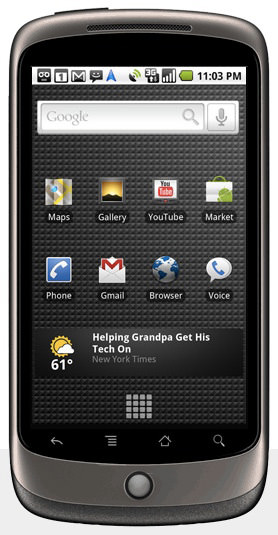
“Google introduced its first smart phone,” the front page of the Wall Street Journal’s website reported Tuesday. That’s if you don’t count the G1, MyTouch, Droid and the other phones designed to some degree by Google — or the 20 devices that run the company’s Android mobile operating system.
Now, the Journal’s editors have come back down to earth and revised the news summary to read: “Google unveiled its own branded mobile phone. …” That’s more like it, but the paper’s earlier take is consistent with others in the mainstream media, blogs and online forums who have been breathlessly awaiting Google’s latest effort in the phone wars.
The same buzzmakers who worked themselves into a tizzy about Apple’s iPhone (justifiably, as it turns out) a year before it even came out are thrilling to Google’s new product and the online store where Google is already selling it. There’s a lot to get excited about, but the real revolution has been around for a year and most people haven’t noticed.
First, let’s talk about the (latest) Google phone. Google is selling the device, called the Nexus One, directly to consumers. You can get it right now.
The Nexus One goes for $529 unlocked — meaning it will run on any compatible carrier without a contract — or you can get one saddled to a two-year T-Mobile contract for $179. Most people will probably choose the latter, until the Verizon version becomes available in “Spring 2010.”
This is the part of the story that’s really turning heads. At a press conference Tuesday, Google executives explained that the company is creating an online marketplace for phones running Android, which is the search giant’s mobile operating system. Google has sold unlocked phones directly to consumers before, but those were aimed at developers, not the mass market.
Right now, phones in the U.S. are sold through carriers, which make deals with both the manufacturers and consumers. If you want an iPhone, you’re stuck with AT&T. Google wants to upset that model by getting carriers to support the same devices and compete for customers on its sales portal.
It’s a nice idea, but at launch the website consists of only one phone and one carrier. It will surely grow, but as revolutions go, we’re in the thinking-out-loud-over-cocktails-at-some-dissident’s-book-party stage.
On paper, the Nexus One is a pretty nice phone, but it’s not exactly mind-blowing. It’s faster than the iPhone (and pretty much every other phone), has a better screen and better camera and it’s even a little thinner. But the iPhone has an edge in other areas, mainly media playback and its gargantuan App Store. The Nexus One also doesn’t use multitouch, a basic and much celebrated feature of modern touch screen interfaces, for reasons Google refuses to explain. The Nexus One might not even be the best Android phone on the market. Engadget’s reviewer found himself longing for the slightly slower Motorola Droid’s screen and keyboard.
Google’s phone philosophy is much more open than Apple’s, and there are plenty of people waiting for the company that radically improves almost everything it touches, from search to e-mail, to come out with that often-rumored iPhone killer. It’s a bit frustrating that Google’s “superphone,” as they’ve dubbed it, is in some ways deficient compared with the version of the iPhone that came out six months ago — an eternity where consumer electronics are concerned. Based on previous releases, Apple is expected to announce a new and improved iPhone around June, with details possibly emerging a lot sooner. The Nexus One is definitely an iPhone competitor, but it’s no killer (at least according to the early reviews).
Forget superphones and newfangled sales models. The craziest slides in Google’s big Tuesday presentation were the ones that pointed out that Android is now on 20 devices and has gone through four major evolutions in the last year.
Let’s take a step back here. The first “first Google Phone” — which, like the Nexus One, was designed by Google, built by HTC and sold for T-Mobile — came out a little over a year ago. It was underwhelming, but in a remarkably short time Google has managed to get its operating system on 19 other devices, some of them very good. Imagine if that pace is maintained.
Google has nowhere near the market share of its rivals, but that could change in a hurry, especially if the engineers at Google HQ keep innovating.
Android’s software updates, alone, can be revolutionary. A recent version update single-handedly decimated the stock value of the major GPS companies because Google decided to give turn-by-turn navigation away free. The latest version lets you use voice recognition in lieu of a keyboard anywhere in the operating system, including text messages and e-mail. WSJ columnist Walt Mossberg found Android’s speech recognition lacking, but as in all things Google we can expect improvement.
As it does with its various Web-based services, Google is constantly adding new functionality to its phones without charging a dime. Is there a business model in all this? Probably, but it often seems Google does things just because the engineers who run the company think it would be cool.
Coolness, or at least geek coolness, is how Google is competing. Apple is still the king of “superphones.” Blackberry and Nokia, despite failing to come up with a product worth getting excited about, still own huge majorities of the smart phone market. Microsoft has plenty of money and talent with which to reinvent Windows Mobile, and Palm might actually be onto something with its WebOS. But in one year Google has managed to spread out across 20 devices on 59 carriers in 48 countries by doing what it always does: make something useful and fun and give it away free.
Why does any of this matter? Because these devices are radically altering our society, how we communicate, learn and interact. As with the media, we’re trusting private companies with an awful lot of responsibility and an awful lot of our personal data. Who will be in charge and how will they use that power? Apple’s dictatorial control over what applications users are allowed to run on its phone has been troubling enough to get the FCC involved. Will Google be a more benevolent prince of our pockets should Android usurp the iPhone?
Your support matters…Independent journalism is under threat and overshadowed by heavily funded mainstream media.
You can help level the playing field. Become a member.
Your tax-deductible contribution keeps us digging beneath the headlines to give you thought-provoking, investigative reporting and analysis that unearths what's really happening- without compromise.
Give today to support our courageous, independent journalists.

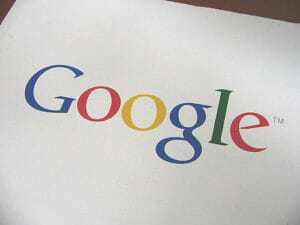

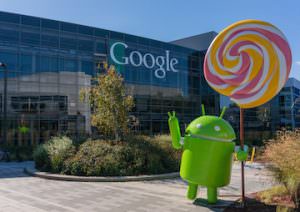
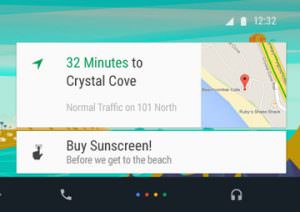
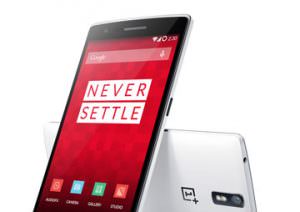


You need to be a supporter to comment.
There are currently no responses to this article.
Be the first to respond.